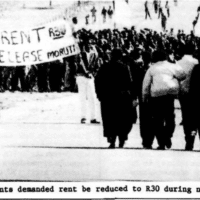-
Tu Youyou, Ho Chi Minh, Mao Zedong and the struggle against malaria
Caused by a parasite which is spread by infected mosquitoes, malaria has killed billions during thousands of years of human history.
-
Trump orders purge of Black History from Smithsonian, targets African American Museum
The executive order is chillingly titled “Restoring Truth and Sanity to American History.” It declares that the Smithsonian, once a symbol of “American excellence,” has become tainted by narratives that portray “American and Western values as inherently harmful and oppressive.”
-
The Buchenwald concentration camp was liberated by Communist prisoners: The Fifteenth Newsletter (2025)
Eight decades ago, communist prisoners organised and liberated the Nazi concentration camp Buchenwald, where they were held. As the far right of a special type rises across Europe, these heroic victories of anti-fascist resistance are under attack.
-
US Imperialism in Crisis: Opportunities and Challenges to a Global Community with a Shared Future
1. Introduction The predominance of US economic, political and military power in the world was established at the end of the Second World War.1 With just 6.3 percent of global population, the United States held about 50 percent of the world wealth in 1948. As the only power which had used nuclear weapons on civilian […]
-
Advancing the boundaries of science: From Oparin, Haldane, Bernal to today
One of the arguments in favour of a divine power–or god–is that life could not have arisen naturally and needed a touch of the divine to come into being.
-
‘Cultural Marxism’: The mainstreaming of a Nazi trope
When Norwegian right-winger Anders Breivik invoked “cultural Marxism” as the reason for his 77-person killing spree in 2011, many observers placed the notion in the same category as the killer—the fringe.
-
The real French Connection was CIA approved
While the French Connection imported opium from Turkey, later in the 1960s the center of heroin production shifted to Southeast Asia against the backdrop of the Vietnam War. The CIA’s Air America transported the junk.
-
Canada and Ukraine: The suppression of a shameful history
A few days before Remembrance Day, November 11, 2024, the Government of Canada announced that it will not release that portion of a report produced by the Commission of Inquiry into War Criminals in Canada (Deschênes Commission) that names 900 Canadians accused of war crimes committed on behalf of the Nazis.
-
The U.S. sees China through the dark mirror of its own unbridled aggression
As China grows and prospers many in the U.S. want us to believe that China will follow the same path that the U.S. itself pursued–global military aggression, the overthrow of numerous governments around the world and persecution of minorities at home. (A repost from February 2023.)
-
Looking backward autobiographically
I’m old enough to remember, just barely, the Great Depression: lines of shabby men waiting for free soup, better-dressed men selling apples on streetcorners, miles of evil-smelling, self-made shacks in a Hooverville near Newark.… In February 1937 I recall the movie newsreel with happy, unshaven sit-down strikers at GM in Flint, waving from the factory windows in a dramatic (Communist-led) victory which changed the USA.
-
A new Pan-Africanism for a new Century
Following the Eurocentric pathways to identity and development are a fallacy that is holding Africa back, ROGER McKENZIE argues.
-
Old contradictions and new possibilities in Marxist and Indigenous praxis
At the 2017 March for Science in Washington, DC , Dr. Lydia Jennings wore a T-shirt that read, “Strong Resilient Indigenous,” and held a sign saying, “Traditional Ecological Knowledge Is Science Too!”
-
Can a global history of humans be a people’s history?
In his new book, Alvin Finkel tells the story of the 99% who have constantly sought to live in a society of equals
-
Imperialism and Culturalism Complement Each Other
In this republished essay from 1996, Samir Amin gives his view of Samuel Huntington’s theory of “clash of civilizations.” His demonstration of why culturalism and imperialism reinforce each other, and how victims can be led to accept “difference” in place of equality and liberation, is today of potential utility everywhere.
-
“A People’s History of Detroit” – Book Review
Composing a history of Detroit is an exercise in tying together many economic and social trends within a microcosm of class, race, and fraught politics. Mark Jay and Philip Conklin’s work discusses the 20th-century history of the city to offer a documentation of class struggle seen through the industrialization of the city in the early 20th century, the racial tensions of the post-World War II period, and, finally, the simultaneous processes of decay and development in the last three decades.
-
Seven Decades of China-Brazil Friendship: Cultural Diplomacy, Agrarian Reform, and the Cold War
This year, Brazil and China celebrate fifty years of official diplomatic relations. The importance of the Sino-Brazilian relationship cannot be underestimated in the context of the rise of the Global South, the decline of U.S. hegemony, and the emergence of a New Cold War. With a look back into the history of bilateral relations, how can we understand the importance of these two countries in the current conjuncture in pushing forward changes unseen in a century?
-
Israel’s war on Lebanon’s history and heritage
Israel isn’t just fighting Hezbollah. It intentionally seeks to eradicate Lebanon’s rich cultural heritage and collective history, aiming to raise the Lebanese cost of supporting the resistance and reshape the state’s political and demographic fabric.
-
Celebrating the 70th anniversary of ‘Salt of the Earth’
The Film was one of the most pro-union movies in American history.
-
The Fortieth Anniversary of the Vaal Uprising
Forty years later, Lehlohonolo Kennedy Mahlatsi looks back on the Vaal Uprising in South Africa, which marked a turning point in the growth of mass-based organizations throughout the country and the mass rejection of apartheid colonial rule.
-
Nobel Peace Prize winner: Gaza like Japan after U.S. atomic bombs
Toshiyuki Mimaki, co-chair of Nihon Hidankyo, the Japanese organization honored with the 2024 Nobel Peace Prize for its anti-nuclear activism, drew comparisons between the plight of children in Gaza and those impacted by the U.S. atomic bombings of Hiroshima and Nagasaki in 1945.



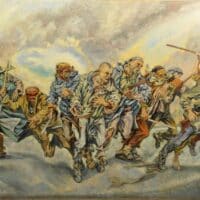
![A late 1940s Soviet poster showing a US military service member lounging on top of a German factory, smoking a cigar. The text beneath reads DER DOLLARIMPERIALISMUS [dollar imperialism].](https://mronline.org/wp-content/uploads/2025/04/Confuse_and_Control_Department_of_State_Publication_4107_1951_-_Soviet_propaganda_line_-_Dollar_imperialism_the_enemy_of_the_German_people-e1744342177232-200x200.png)


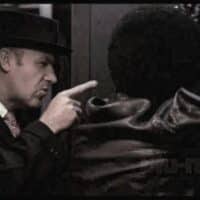
![Ukrainian President Volodymyr Zelensky, left, meets with Canadian Governor General Mary Simon in Ottawa on September 22, 2023. [Source: ctvnews.ca]](https://mronline.org/wp-content/uploads/2025/01/Screenshot-2025-01-17-at-84134 AM-200x200.png)

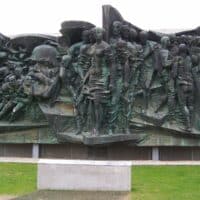
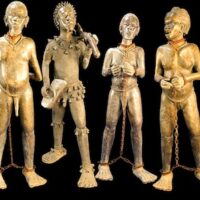



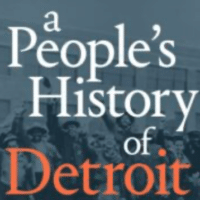

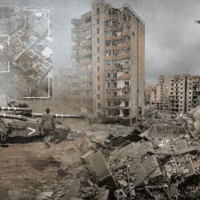
![[Source: en.wikipedia.org]](https://mronline.org/wp-content/uploads/2024/10/Screenshot-2024-10-27-at-101144 AM-200x200.png)
